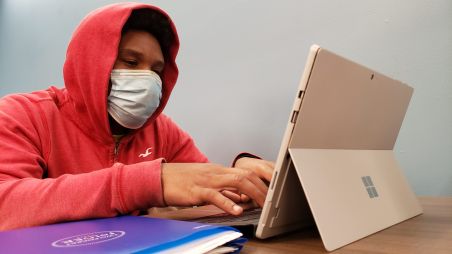
Finals are just around the corner and many students have different ways of preparing for exams. Some might grab a coffee or energy drink in an effort to stay up and pull an all-nighter but those aren’t always the most effective ways to get ready for a test.
Here are some of the best ways to study for tests according to Post University.
Forming study groups with classmates is useful. Bouncing ideas and reviewing information with your peers will only help you to understand the material.
Sam Geathers, sophomore biochemistry major,understands that studying is a personal choice that professors can’t make you do, so for Geathers, study groups are a good way of reviewing for tests.
“I had to make my own study groups and talk to people about how things work,” Geathers said.
Finding a good study space allows you to focus on the information. Do you listen to music while you study? Do you need the right snacks to keep your mind sharp? Do you need total quiet to concentrate? Sophomore psychology major, Abeni Cooper finds that a good location helps her to study.
“For me I have to be in a quiet area so I usually study in my room,” Cooper said.

Location can be everything when studying. In a place with too many distractions, it can be impossible to stay focused on what you’re doing. If that’s the case then you can always change your surroundings.
If people are in the living room and the television is too noisy, go to your bedroom. If the smell of what’s being cooked in the kitchen is too much to handle, go study outside. If you need total isolation, go study in your car.
Wherever you feel you can dedicate your time to studying best may be the place for you.
Take good notes. Constantly review them before each class and make sure to put your effort into reviewing what you don’t know. If there are concepts that you know you understand, quickly review them and move on to what’s been difficult to grasp. This can cut down on the study time.
Don’t burn yourself out while studying. You might want to make sure you’re understanding all the material but it’s important for your mind to take breaks.
“If you can’t remember anything then you need to take a break,” Cooper said.
Take a walk, listen to music, watch television or play a game, but make sure to come back to studying. It can be hard to grasp a lot of information at once so let your mind rest before continuing.
It can be difficult to set time aside to study, but one of the best skills you can learn is time management.
“You have to do it on your own time,” Geathers said.
Getting into a routine and scheduling study days are important. Blocking out time and dedicating it to preparation can go a long way and you may end up with the results you were looking for.
“I try to plan out my week; if I have multiple exams I try to plan it out so I have a few days to study,” Cooper said. “Then on those days I give myself the allotted time.”
It does not have to be four hours a day or every day of the week. But studying a few times a week for an hour is better than not studying at all. It will help to put an end to those late-night cram sessions.
Infographic made by Erica Zebrowski




Great article!
Well said, Mr. Isaiah Dickson. I’ll consider this next time I study for my exams.